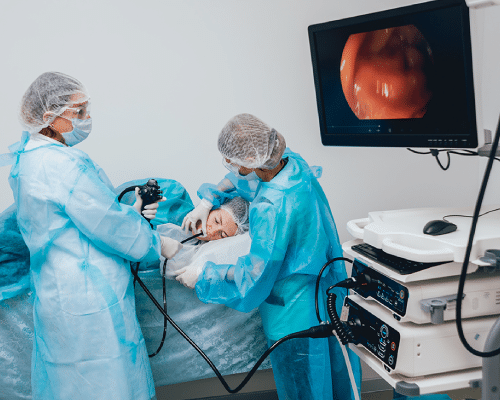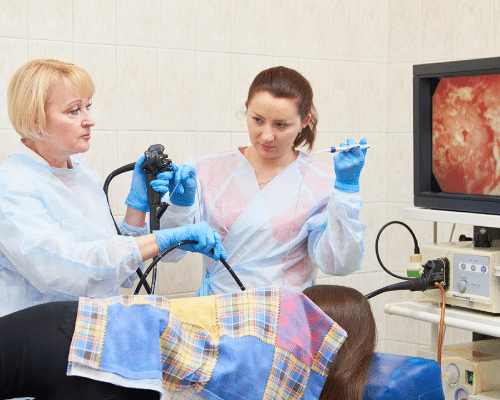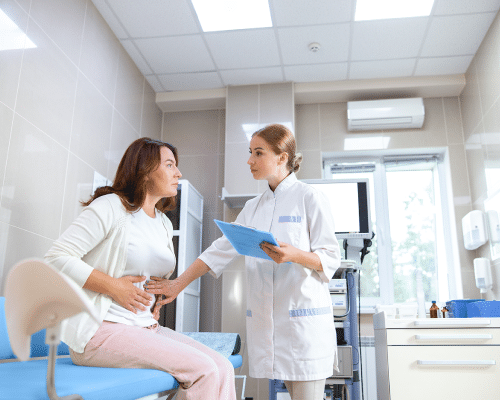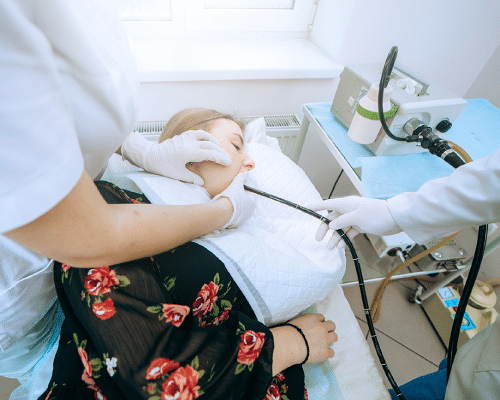Colon Cancer
Things You Need to Know About Colon Cancer
Dallas Area Office
12606 Greenville Ave
Dallas, TX 75243
Mon. - Fri. 8:00 – 5:00
Sat. - Sun. By Appointment
Southlake Office
470 E State Highway 114
Southlake, TX 76092
Mon. - Fri. 8:00 – 5:00
Sat. - Sun. By Appointment
Same Day Appointments
Tel: (817) 476-8933
Same-day consultations are available. Please call to confirm availability.
Things You Need to Know About
Colon Cancer
Colon cancer is the third leading cause of cancer-related deaths in the United States. In fact, one in every 23 men and one in every 25 women will develop colon cancer over their lifetime, according to the American Cancer Society (ACS).
Unfortunately, colon cancer is not easy to detect during its early stages since many of its common symptoms may also be because of other health issues. Thus, it is vital to learn about these symptoms, so you can consult a doctor early on. This article will discuss what colon cancer is and what are its several warning signs. Keep reading to learn more.
What is Colon Cancer?
Colon cancer is a form of cancer that develops in the large intestine and is characterized by malignant tumors. The colon, which is also referred to as the large intestine, is where the body absorbs water and salt from solid waste. The waste then exits the body via the anus through the rectum.
Colon cancer is more common in older people, but it can strike anyone at any age. It typically starts as polyps, which are tiny, noncancerous or benign clumps of cells that grow inside the colon. Any of these polyps can develop into colon cancer in the long run.
Small polyps can cause a few symptoms. As a result, physicians advise routine colon cancer screening tests to help avoid colon cancer by detecting and eliminating polyps before they become cancerous.
What are the Warning Signs of Colon Cancer?
The fact that colon cancer is difficult to detect is among the reasons why it is so lethal. Colon cancer symptoms typically appear after the problem has spread. As such, colon cancer screening tests should be done on a regular basis, particularly if you’re at a higher risk due to a family medical history. These screenings are the only way to detect cancer in its early stages.
If you have any of the following colon cancer symptoms, you should seek medical attention. Many times, people who exhibit these symptoms are not suffering from cancer. However, if you have any of them, you can consult your doctor so that the cause can be identified and handled.
- Irregular Bowel Movements
Irregular bowel movements may be a symptom of a variety of problems. However, symptoms like constipation, diarrhea, oddly shaped or bloody stool, and other irregularities may be due to colon cancer.Polyps in the colon obstruct the passage of food waste, making it much harder to flush out, resulting in constipation. In contrast, with diarrhea, polyps or tumors in the colon may hinder it from properly processing waste, resulting in waste leaving the body in a liquid state. Stool that is unusually shaped could suggest a colon issue. For instance, if the stool is thin or ribbon-like, it could indicate that the body’s waste has passed through obstructions, such as polyps or tumors. Bloody stool may also indicate the existence of tumors in the colon, which are ripped apart by waste flowing through the body as the tumors develop or spread, resulting in fresh blood leaking to the stool. If passing waste out of the body is difficult, it may be an indication that there is something obstructing it within the colon, such as polyps or tumors. This can also contribute to a constant need to use the restroom, even though it hasn’t been too long. Your wellbeing can be jeopardized if these obstructions are cancerous. If you have some of these bowel irregularities on a regular basis, speak to your doctor about getting a colon cancer screening.
- Gastrointestinal Discomfort
Abdominal pain is a common occurrence. It can be caused by consuming a particular form of food for many people. However, it shouldn’t occur regularly, and if it does, it may indicate deeper issues. This is because clogging in the colon can inflict gastrointestinal pain or discomfort. If a cancerous tumor causes this obstruction, you might be in grave danger. Abdominal spasms that are particularly painful could indicate that the cancer has progressed or even ruptured the intestinal lining. Bloating or gassiness, on the other hand, may be a symptom of colon cancer. This is because colon cancer usually develops from malignant tumors in the lower intestine, which acts as waste obstructions. As waste accumulates in the colon, the patient can experience gassiness, bloating, and general discomfort. If you experience a lot of gastrointestinal discomforts, consult a physician about having checked for colon cancer.
- Sharp Drop in Weight
The onset of colon cancer can be accompanied by a rapid loss of weight, but it’s hardly ever a direct cause. Weight loss is typically caused by gastrointestinal discomfort, which is another colon cancer symptom. If processing food becomes too unpleasant or painful, a person will hesitate to eat or stop altogether. Consuming fewer calories and losing weight can exacerbate the issue by starving the body of essential nutrients, including fiber. So, if you’ve been eating less and rapidly losing weight as a result of gastrointestinal pain or discomfort, see your doctor right away.
- Bladder Infections on a Regular Basis
Bladder infection, which is also referred to as urinary tract infection, is a common illness that is characterized by a burning sensation or pain while urinating, urgency, spasms, and loss of bladder control. While they are more common in women, they may also affect men. A bacterial infection is usually to blame. However, if they happen often and the signs are mainly urgency and loss of bladder control, it may be a symptom of colon cancer that has progressed to the stage where it is placing stress on nearby organs.
- Chronic Fatigue Millions of people in the United States suffer from chronic fatigue, which can be caused by a variety of factors. It may be a symptom of a virus, a sign that a person is suffering from insomnia, among others. Extreme tiredness, on the other hand, may be a symptom of colon cancer. This is because cancerous polyps that are a result of colon cancer can split and bleed if ruptured by food waste. If this bleeding occurs regularly, a person can develop anemia, which is typically caused by iron deficiency as a result of blood loss. In other words, if you have a bloody stool on a daily basis and are constantly exhausted, you need to consult with your doctor about getting a colon cancer screening test.
Takeaway Points
Colon cancer is a deadly disease that can be very difficult to identify early on. The reason is that colon cancer symptoms are very similar to other conditions. That is why, if you are experiencing any of the colon cancer symptoms discussed throughout this article, it’s important to consult with your doctor so you can undergo a colon cancer screening and detect colon cancer as soon as possible.How can we help you?
Our Services
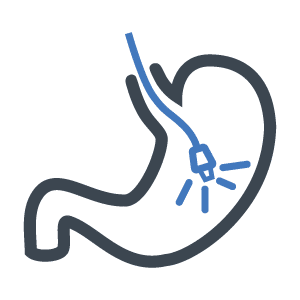
endoscopy
Endoscopic ultrasound is a test that lets your doctor look at the walls of your esophagus, stomach, and upper gastrointestinal tract. The test does not use X-rays or other radiation. The doctor uses a thin, lighted tube that bends.
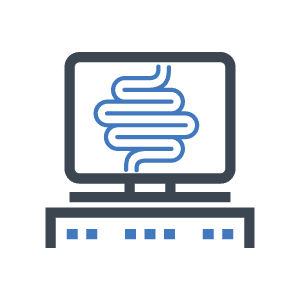
colonoscopy
Having a colonoscopy can help doctors pinpoint the possible causes behind rectal bleeding, abdominal pain, chronic diarrhea, chronic constipation, along with other intestinal problems.
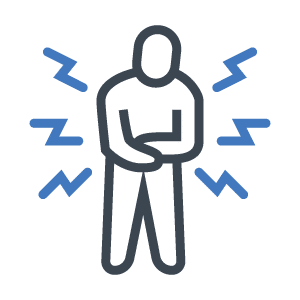
Colon Cancer Screening
If you’re over 50 or experience serious stomach pain, you should conduct regular screenings for colon cancer. Colorectal cancer is the second leading cause of death, accounting for 10 to 11% of cancer deaths overall.
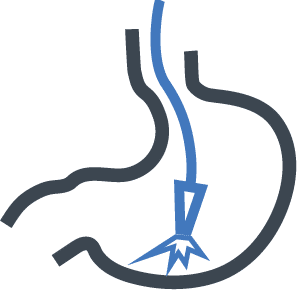
ULCER CAUTERIZATION
Gastric and duodenal ulcers are open wounds in your digestive tract and intestine tract. Ulcers can cause abdominal pain and can lead to internal hemorrhaging if not closed via non-surgical cauterization.
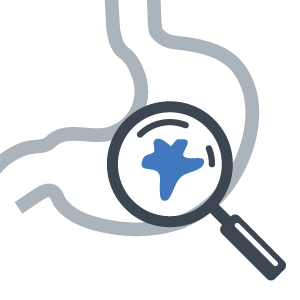
ULCER SCREENING
Having a colonoscopy can help doctors pinpoint the possible causes behind rectal bleeding, abdominal pain, chronic diarrhea, chronic constipation, along with other intestinal problems.
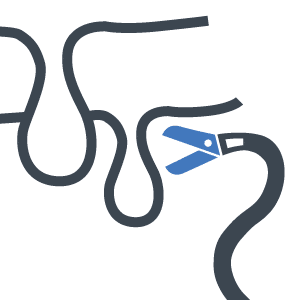
POLYP REMOVAL
If you’re over 50 or experience serious stomach pain, you should conduct regular screenings for colon cancer. Colorectal cancer is the second leading cause of death, accounting for 10 to 11% of cancer deaths overall.
What do you need to know?
Frequently Asked Questions
When to see a gastroenterologist?
Aside from being referred by your primary care doctor, you can also go directly to a gastroenterologist when you need a colon cancer screening, or you feel the following symptoms:
- Lethargy
- Loss of weight or appetite
- Vomiting
- Esophageal pain
- Excessive belching or gas
- Abdominal bloating or pain
- Acid Reflux Or Heartburn
- Dark urine
- Pale-colored stools
- Changes in bowel habits
- Diarrhea
- Hard-to-control bowel movement urges
- Leakage/underwear stains
- Rectal bleeding
What is an endoscopy?
This is a non-surgical procedure that uses an endoscope. The endoscope allows your gastroenterologist to see the insides of your digestive tract via a monitor.
That way, they can examine your digestive tract more accurately and efficiently.
What is a colonoscopy?
This is an examination to detect abnormalities or changes in your rectum or large intestines. It uses a colonoscope or a flexible tube that is inserted into your rectum. This allows your physician to see your colon’s insides because the colonoscope has a tiny video camera.
What is an EGD test?
To examine the lining of your duodenum (the upper part of your small intestine), stomach, or esophagus, you may need to undergo an EGD or esophagogastroduodenoscopy (also known as upper endoscopy).
This test also uses an endoscope that passes down your throat and along your esophagus.
That way, they can examine your digestive tract more accurately and efficiently.
How should I prepare for an upper endoscopy procedure?
You may need to do the following before an EGD:
- Set an appointment.
- Fast for about six hours before your appointment — no drinks or food.
- Get a driver to drive you home.
That way, they can examine your digestive tract more accurately and efficiently.
How long does an endoscopy procedure take?
We recommend you should be in our center for about two hours before an endoscopic procedure. For colonoscopy and EGD, you need to be sedated to make you comfortable and safe.
The test itself will only be about 30 minutes. However, you may need extra time for preoperative check-in, registration, and postoperative recovery.
Thus, the overall time you may spend in our center is about two hours.
That way, they can examine your digestive tract more accurately and efficiently.
Is my insurance acceptable?
As for Medicare, we currently do not accept it, but we accept all major insurance providers.
Before your test, we verify your benefits and eligibility. We will be happy to assist you, but you should also be aware of your insurance coverage.
Will I receive a bill after the procedure?
You may receive various statements for your bills. These include the following:
- Bill from the laboratory to analyze the specimens your physician obtain during your test
- Physician’s bill
- Bill from the center
Will I need a driver?
During an endoscopy or colonoscopy, you will receive a sedative or narcotic to help you relax during the test. Thus, after the test, you cannot drive as you may feel drowsy because of the sedative or narcotic.
Most medical facilities do not allow you to take the procedure unless you have a ride home ahead of time.
How should I fast?
Most recommend fasting the night before the procedure, while you must follow fasting six hours before the test.
Can I take regular medications before a test?
Before and after your test, we recommend you take your usual medications. However, for diabetic medications like pills or insulin, you should not take them. Other medications that are not allowed prevent clottings, such as Ticlid, Plavix, and Coumadin.
In these cases, we may have to review your medications before you undergo a test.
Is the procedure painful?
As mentioned, you will be sedated so the test will be comfortable. This means you should not feel anything during the procedure.
After the procedure, you are most likely to feel hungry, gassy, drowsy, and have a slightly dry mouth. However, these will gradually wear off.
Can I eat anything after the test?
Yes, but you should take it slow, and it is recommended to take a light meal only. We also recommend taking a nap until the effects of the sedation are completely worn off, as you will likely be drowsy for about four hours after the procedure.
Can I return to work after the test?
Yes, but it should be the following morning. You will be quite drowsy for at least four hours after the test.
How long until I see the results?
After your procedure, you can immediately know the results. Your physician will discuss the results with you and your family. We also provide a written explanation.
We will contact you once we have the results for the tissue samples because they will still undergo a lab analysis.
How long until I see the results?
After your procedure, you can immediately know the results. Your physician will discuss the results with you and your family. We also provide a written explanation.
We will contact you once we have the results for the tissue samples because they will still undergo a lab analysis.
How long until I see the results?
After your procedure, you can immediately know the results. Your physician will discuss the results with you and your family. We also provide a written explanation.
We will contact you once we have the results for the tissue samples because they will still undergo a lab analysis.
What should I do if I have other questions?
If you have more queries regarding endoscopic procedures, you can browse our page for articles related to your procedure.
You can also call us directly.
Contact us
Schedule A Consultation
We know you are busy. You can give us a call (817) 476-8933 or leave us your details and a patient care specialist we will contact you during our normal business hours.
DFW Digestive Care will never sell your contact information or send you unsolicited offers that do not pertain to our health services.
© DFW Digestive Care. Copyright. All Rights Reserved.

